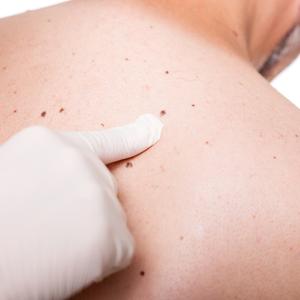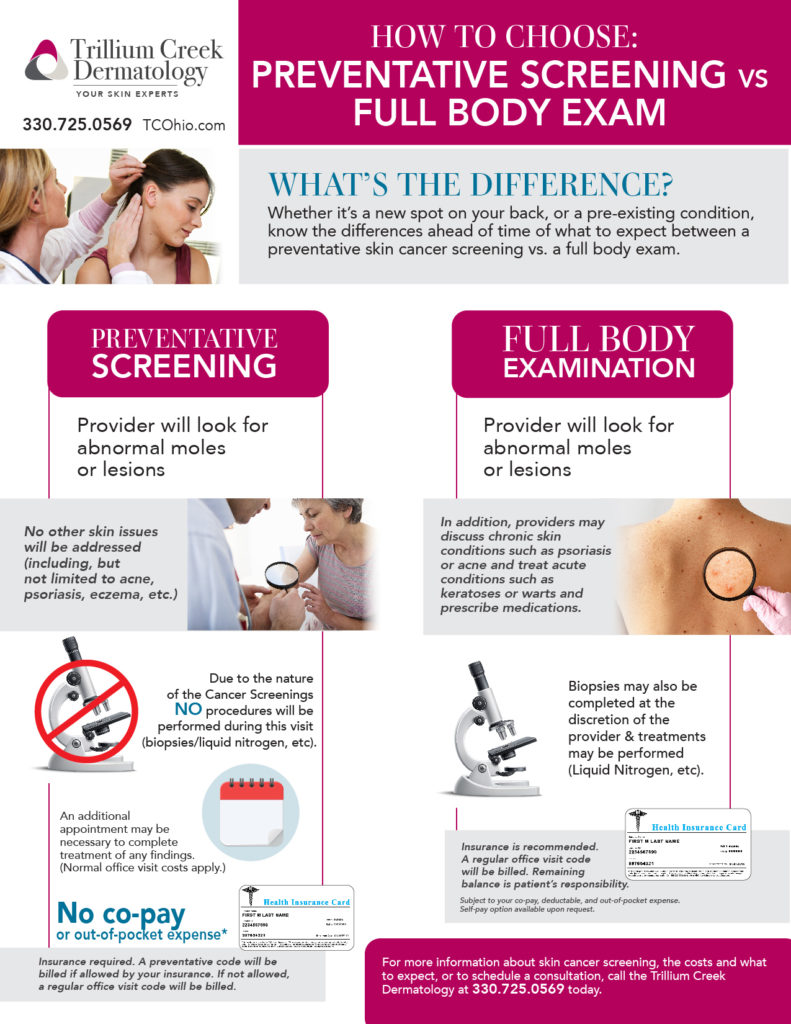Quick Links
Your skin is the largest organ of your body, so skin cancer screenings can reveal much about your overall health and well-being. Covering 18 square feet and weighing 7 pounds on the average adult, your skin is the waterproof barrier that protects your body from dirt, bacteria, and harmful substances, and also helps to regulate your body temperature.
Dermatologists and their physician assistants are trained to catch the early signs and symptoms of skin cancer; pre-cancers, basal cell cancers, squamous cell skin cancers, and malignant melanoma. While a self-exam is great, you can’t reach every area to see if there is a spot to worry about. A good way to ensure early detection and treatment, especially for those at increased risk, is with an annual full-body skin cancer screening examination by a dermatologist at Trillium Creek Dermatology. We are serving the following communities and those surrounding: Wooster, Wadsworth, Medina, Brunswick, Strongsville, and Hinkley.
What to Expect At Your Skin Cancer Screening

During your skin cancer screening exam, a Trillium Creek Dermatology skin healthcare expert will check every part of your body for skin cancers — including your head, nose, ears, breast, groin, buttocks, and toes. Your dermatologist will be looking for discolored areas, bumps, unusually shaped freckles, unusual moles, and suspicious spots with irregular borders. Full body exams are especially important for people who work outdoors.
Most skin cancers, if caught and treated early, are 100% curable. If an area or bump looks suspicious, it will be biopsied through a simple procedure of numbing it and then shaving off a skin sample to send to a laboratory. Patients with a skin biopsy of proven skin cancers on the head and neck are referred to Dr. Bryan Baillis at the Mohs Skin Cancer Center at Trillium Creek Dermatology.
The entire skin cancer and screening test procedure takes only 15 minutes — and that 15 minutes may save your life.
Compassion When You Need It Most
At Trillium Creek Dermatology, we understand that a skin cancer diagnosis can be life-changing. That’s why we take a caring, compassionate approach to skin cancer screening tests, results, treatment, and Mohs surgery. When you come to our state-of-the-art facilities, we’ll take the time to answer your questions and address any skin cancer concerns you might have. And our dedicated staff of doctors will be at your service before, during, and after your treatment.
We also realize that some clients may have initial concerns that a skin exam may be embarrassing; however, our professional medical care staff will put you at ease. We have both male and female providers so you can choose the person you feel most comfortable with to perform your examination.



